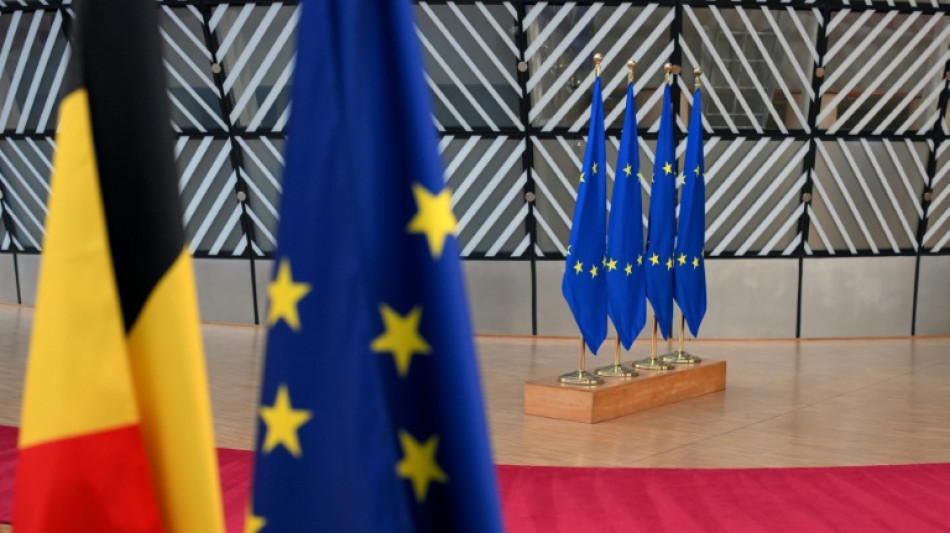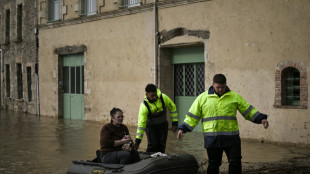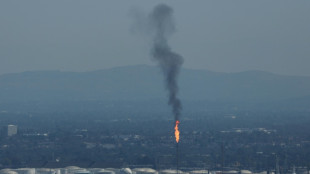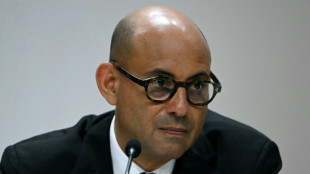

EU strikes last-ditch deal on climate targets as COP30 looms
The European Union struck a deal Wednesday on the 27-nation bloc's next big emissions-cutting targets, after making a string of concessions to win over reluctant capitals in time for the UN's COP30 summit.
After marathon overnight talks, the bloc averted the worst-case scenario of turning up empty-handed to next week's gathering in Brazil -- where it hopes to assert its leadership in the fight against global warming.
Capping months of haggling, EU countries agreed to target a 90-percent cut in greenhouse gas emissions by 2040, compared to 1990 levels -- a key milestone towards its goal of becoming carbon neutral by mid-century.
They also agreed on a related 2035 target to bring to the UN summit -- which EU chief Ursula von der Leyen trumpeted as "good news" as she arrived in the northern Brazilian city of Belem for the November 10-21 talks.
But countries will be allowed to count international carbon credits towards five percent of that goal, a ceiling that could rise to 10 percent under future revisions -- one of a string of concessions slammed by environmentalists.
Greenpeace said the final compromise "falls significantly short" of what is needed from the bloc of 450 million inhabitants.
"It's like promising to run a marathon by only training 10 kilometres, taking the bus for the last kilometre of that, and reserving the right to just stay home if it rains," charged Greenpeace campaigner Thomas Gelin.
- Sweeping changes -
Behind only China, the United States and India in terms of emissions, the EU has been the most committed of the major polluters to climate action and has already cut emissions by 37 percent compared to 1990 levels.
But after blazing a trail, the EU's political landscape has shifted right, and climate concerns have taken a backseat to defence and competitiveness -- with concerns in some capitals that greening Europe's economy is harming growth.
The EU needed support from a weighted majority of countries for the 2040 climate target set out by the European Commission -- which implies sweeping changes to industry and daily life.
Ministers also needed a unanimous deal on the EU emissions target for 2035, known as a Nationally Determined Contribution (NDC), which Paris Agreement signatories are supposed to bring to the COP30.
That objective, set at between 66.25 percent and 72.5 percent, was also agreed overnight.
- 'A bit painful' -
To win over the staunchest sceptics, the Brussels talks led to an extension of "flexibilities" for member states, including the contested mechanism letting countries factor in carbon credits purchased to finance projects outside Europe.
Countries including Poland and Hungary also secured backing for a one-year delay, from 2027 to 2028, to the launch of a new EU carbon market for the road transport and industrial heating sectors -- which critics fear will drive up fuel prices.
And in a further big sweetener, EU countries agreed for the overall 2040 objective to be periodically reassessed.
"It is an agreement that is pragmatic, that is ambitious, that delivers speed, and it delivers flexibility," EU climate chief Wopke Hoestra told a news conference.
French environment minister Monique Barbut said France was "extremely satisfied" -- while conceding the deal process was "a bit painful" faced with strong resistance from Italy in particular.
Germany's environment minister, Carsten Schneider, said EU nations were "moving forward together in lockstep," and that "on this basis, Europe can play a leading role at the World Climate Conference."
Environmental groups accused countries of undermining the bloc's climate ambitions by pushing for loopholes.
Sven Harmeling of the Climate Action Network Europe, said the deal was "far weaker than the 90 percent headline suggests."
"This shows the EU is staying the course on its decarbonisation," she said.
G.Vogl--MP




